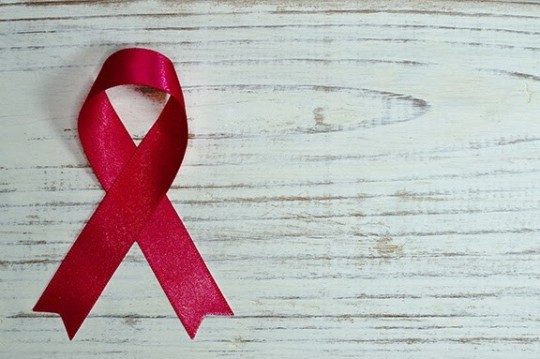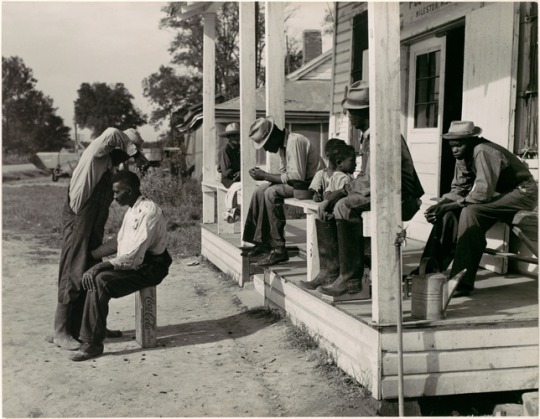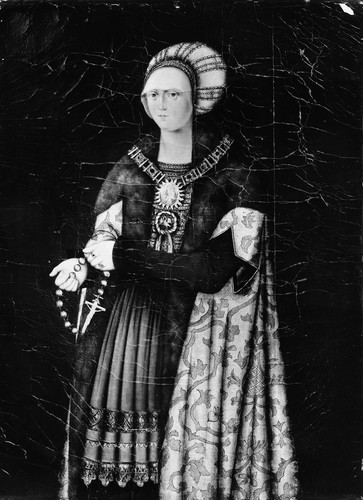#Wolcott NY
Text
Embark on Unforgettable Limo Wine Tours Across Long Island

Experience the epitome of luxury and sophistication as you venture through Long Island's scenic vineyards with our exclusive Limo Wine Tours. At the helm of opulent experiences, our Long Island limo wine tours redefine elegance, offering a seamless fusion of convenience, comfort, and exquisite wine tastings across this picturesque region.
Immersive Exploration: Long Island's Limo Wine Tours
Step into a world of refined pleasures with our meticulously crafted Long Island limo wine tours. Each journey is a carefully orchestrated affair, catering to wine enthusiasts and casual adventurers alike, ensuring an immersive exploration of Long Island's prestigious wineries.
Discovering Long Island's Wine Country in Elegance
Our Long Island wine tours in limos invite you to explore the heart of New York's wine country while luxuriating in the comfort of our premium fleet. Traverse the lush landscapes, from North Fork's rolling vineyards to the Hamptons' chic wineries, as our expert chauffeurs guide you through an indulgent wine-tasting extravaganza.
Elevated Experience: Limo Tours Across Long Island's Wine Trails
Delight in the splendor of Long Island's wine trails aboard our lavish limousines. Our specialized tours promise an elevated experience, ensuring a seamless journey through Long Island's acclaimed wine regions. Revel in the scenic beauty while immersing yourself in the diverse flavors offered by the region's renowned wineries.
Tailored Luxury: Long Island Wine Tours in Limo
We curate tailored experiences for every wine aficionado. Whether it's a romantic escape, an intimate gathering, or a corporate outing, our Long Island wine tours in limos promise an unforgettable day amid the sophistication and grandeur of New York's flourishing wine culture.
Book Your Exclusive Long Island Limo Wine Tour Experience
Discover Long Island's illustrious vineyards and delight in the finest wines with our exclusive limo wine tours. Join us for an unparalleled oenophilic journey that seamlessly merges luxury, comfort, and curated experiences.
Embark on an extraordinary adventure with ACE Luxury Wine Tours and elevate your Long Island wine-tasting escapade to an opulent affair.
Contact Details
99 Wolcott Rd, Levittown, NY 11756, USA
Office: 631-307-6004
Hours of operation: 10am - 9pm
0 notes
Text
Book the Luxury Limousine for your Wedding Day in Long Island
Limo Rental service provided by Acelimoli is one of the best in the region as we own luxury, newly purchased and well maintained limousines from the reputable car makers and models. You can also book wedding transportation in long island. We have awesome collections of wedding limousine in long island.
We provide the most affordable limo rentals with greater comfort. The modish limos are also spacious making them very suitable for get-together parties, business trips or even family trips. Get in touch with us today for the best limousine deals. Their prices are the best in the city. Acelimoli finds the interest of its customers and provides them with suitable limo varieties. We do give suggestions that suit your needs and the decision is up to you to choose from our fleet. Visit us today for party bus rental in long island.
Whether you need just a simple transportation or a full day disposal, we can provide you with a luxury limousine or transformer limo for 6-17 passengers for partners, friends and family. With different and luxurious limos, you will always find one to carry all our luggage to or from the required destination at the right time. We also provide you a wide collection of Rolls Royce.
Hire them today and you will be amazed by the quality you will be offered. The prices may vary depending on your destination, the number of people in the limo and the luggage you are carrying. Despite these differences, you will always find it relatively cheaper and their prices are unbeatable in the city. Our experience will help you with anything you wish.
Give us a call
Call for an appointment to see any of our limousines
Office: 516-232-5556
Address
99 Wolcott Rd, Levittown, NY 11756, USA
You can also email us at
Email : [email protected]
Hours
Mon-Fri: 10am-9pm
Sat: 10am-3pm
Sun: 10am-3pm
#Bachelorette Party Bus long island#Best Limo Long Island#Best Limo Service Long Island#limo company long island#Long Island Limo Rental#Long Island Limo Service#Long Island Limousine Service#Long Island Party Bus#Long Island Prom Limo#Long Island Wedding Limousine#Party Bus Rental Long Island#Party Bus to Jones Beach#Prom Party Bus Long Island#Rolls Royce Rental Long Island#Wedding Limo LI#Wedding Limo Long Island#Wedding Limo Rental Long Island#Wedding Limousine Long Island#Wedding Transportation Long Island
0 notes
Photo

Chimney Bluffs is nothing short of amazing during the winter. We love visiting here on a sunny winter day and walking the frozen beach. There are ice formations over everything, which look like magical works of natural art. The snow-covered Bluffs loom over the beach, creating an incredibly amazing backdrop. https://adventuresny.com/hiking/chimney-bluffs-state-park-wolcott-ny/ #chimneybluffs #newyorkstateparks #snow #bluffs #lakeontario #iceformations #iceandsnow #winterhiking #frozen #frozenlake #winterinnewyork #wintertime #natureseekers #winterisbeautiful #stunningbeauty #natureisbeautiful #outdoorlife #outdooradventures #hiking👣 #hikelife #hikelikeagirl #greatoutdoors #lovenature #natureaddict (at Chimney Bluffs State Park) https://www.instagram.com/p/CoVYtWpu7hm/?igshid=NGJjMDIxMWI=
#chimneybluffs#newyorkstateparks#snow#bluffs#lakeontario#iceformations#iceandsnow#winterhiking#frozen#frozenlake#winterinnewyork#wintertime#natureseekers#winterisbeautiful#stunningbeauty#natureisbeautiful#outdoorlife#outdooradventures#hiking👣#hikelife#hikelikeagirl#greatoutdoors#lovenature#natureaddict
0 notes
Text

Facts You May Not Have Known About Oral Cancer | Family Dentist Wolcott NY http://dlvr.it/SgvXRK
0 notes
Photo




(via Opening the Door to New Experiences)
#Kuk Sool Won#Wolcott NY#Korean Martial Arts#Deborah Sergeant#Tracy Chamberlain Higginbotham#Tracy Higginbotham#inspiration#women in sport#women in business#Tuesday Thoughts#Tuesday vibes#Good Tuesday#Tuesday Morning#motivation#wisdom#new experiences#life#business#sports#female athletes#sporting life#Women TIES#Women's Athletic Network
2 notes
·
View notes
Photo

[Open-Air Barber at Work and Waiting Customers before Mileston, Mississippi, Post Office] by Marion Post Wolcott, Metropolitan Museum of Art: Photography
Ford Motor Company Collection, Gift of Ford Motor Company and John C. Waddell, 1987 Metropolitan Museum of Art, New York, NY
Medium: Gelatin silver print
http://www.metmuseum.org/art/collection/search/265311
49 notes
·
View notes
Text
THEORY AND PRACTICE OF EDITING NEW YORKER ARTICLES
youtube
This was written by Wolcott Gibbs around 1937, apparently at the request of Katharine White, who wasthen trying out a succession of new fiction editors. Though it has passed into New Yorker legend, "Theory and Practice" was a working document and fairly reflected the magazine's guidelines and tastes of the time e. [--from Genius in Disguise: Harold Ross of the New Yorker, by Thomas Kunkel (Carroll & Graf,NY 1995]
THE AVERAGE CONTRIBUTOR TO THIS MAGAZINE IS SEMI-LITERATE; that is, he is ornate to no purpose, rull of senseless and elegant variations, and can be relied on to use three sentences where a word would do. It is impossible to lay down any exact and complete formula for bringing order out of this underbrush, but there are a few general rules.
Writers always use too damn many adverbs. On one page, recently, I found eleven modifying the verb "said": "He said morosely, violently, eloquently," and so on. Editorial theory should probably be that a writer who can't make his context indicate the way his character is talking ought to be in another line of work. Anyway, it is impossible for a character to go through all these emotional states one after the other. Lon Chancy might be able to do it, but he is dead.
Word "said" is O.K. Efforts to avoid repetition by inserting "grunted," "snorted," etc., are waste motion, and offend the pure in heart.
Our writers are full of cliches, just as old barns are full of bats. There is obviously no rule about this, except that anything that you suspect of being a cliche undoubtedly is one, and had better be removed.
Funny names belong to the past, or to whatever is left of Judge magazine. Any character called Mrs. Middlebottom or Joe Zilch should be summarily changed to something else. This goes for animals, towns, the names of imaginary books and many other things.
Our employer, Mr. Ross, has a prejudice against having too many sentences begin with "and" or "but." He claims that they are conjunctions and should not be used purely for literary effect. Or at least only very judiciously.
See our Mr. Weekes on the use of such words as "little," "vague," "confused," "faintly," "all mixed up," etc., etc. The point is that the average New Yorker writer, unfortunately influenced by Mr. Thurber, has come to believe that the ideal New Yorker piece is about a vague, little man helplessly confused by a menacing and complicated civilization. Whenever this note is not the whole point of the piece (and it far too often is) it should be regarded with suspicion.
The repetition of exposition in quotes went out with the Stanley Steamer: Marion gave me a pain in the neck. "You give me a pain in the neck, Marion," I said. This turns up more often than you'd expect.
Another of Mr. Ross's theories is that a reader picking up a magazine called The New Yorker automatically supposes that any story in it takes place in New York. If it doesn't, if it's about Columbus, Ohio, the lead should say so. "When George Adams was sixteen, he began to worry about the girls he saw every day on the streets of Columbus" or something of the kind. More graceful preferably.
Also, since our contributions are signed at the end, the author's sex should be established at once if there is any reasonable doubt. It is distressing to read a piece all the way through under the impression that the "I" in it is a man and then find a woman's signature at the end. Also, of course, the other way round.
To quote Mr. Ross again, "Nobody gives a damn about a writer or his problems except another writer." Pieces about authors, reporters poets, etc., are to be discouraged in principle. Whenever possible the protagonist should be arbitrarily transplanted to another line of business. When the reference is incidental and unnecessary, it should come out.
This magazine is on the whole liberal about expletives. The only test I know of is whether or not they are really essential to the author's effect. "Son of a bitch," "bastard" and many others can be used whenever it is the editor's judgment that that is the only possible remark under the circumstances. When they are gratuitous, when the writer is just trying to sound tough to no especial purpose, they come out.
In the transcription of dialect, don't let the boys and girls misspell words just for a fake Bowery effect. There is no point, for instance, in "trubble," or "sed."
Mr. Weekes said the other night, in a moment of desperation, that he didn't believe he could stand any more triple adjectives. "A tall, florid and overbearing man called Jaeckel." Sometimes they're necessary, but when every noun has three adjectives connected with it, Mr. Weekes suffers and quite rightly.
I suffer myself very seriously from writers who divide quotes for some kind of ladies club rhythm. "I am going," he said, "downtown" is a horror, and unless a quote is pretty long I think it ought to stay on one side of the verb. Anyway, it ought to be divided logically, where there would be pause or something in the sentence.
Mr. Weekes has got a long list of banned words beginning with "gadget." Ask him. It's not actually a ban, there being circumstances when they're necessary, but good words to avoid.
I would be delighted to go over the list of writers, explaining the peculiarities of each as they have appeared to me in more than ten years of exasperation on both sides.
Editing on manuscript should be done with a black pencil, decisively.
I almost forgot indirection, which probably maddens Mr. Ross more than anything else in the world. He objects, that is, to important objects, or places or people, being dragged into things in a secretive and underhanded manner. If, for instance, a Profile has never told where a man lives, Ross protests against a sentence saying "His Vermont house is full of valuable paintings." Should say "He had a house in Vermont and it is full, etc." Rather weird point, but it will come up from time to time.
Drunkenness and adultery present problems. As far as I can tell, writers must not be allowed to imply that they admire either of these things, or have enjoyed them personally, although they are legitimate enough when pointing a moral or adorning a sufficiently grim story. They are nothing to be light-hearted about. " The New Yorker cannot endorse adultery." Harold Ross vs. Sally Benson. Don't bother about this one. In the end it is a matter between Mr. Ross and his God. Homosexuality, on the other hand, is definitely out as humor, and dubious, in any case.
The more "as a matter of facts," "howevers," "for instances," etc., you can cut out, the nearer you are to the Kingdom of Heaven.
It has always seemed irritating to me when a story is written in the first person, but the narrator hasn't got the same name as the author. For instance, a story beginning: "George," my father said to me one morning; and signed at the end Horace Mclntyre always baffles me. However, as far as I know this point has never been ruled upon officially, and should just be queried.
Editors are really the people who should put initial letters and white spaces in copy to indicate breaks in thought or action. Because of overwork or inertia or something, this has been done largely by the proof room, which has a tendency to put them in for purposes of makeup rather than sense. It should revert to the editors.
For some reason our writers (especially Mr. Leonard Q. Ross) have a tendency to distrust even moderately long quotes and break them up arbitrarily and on the whole idiotically with editorial interpolations. "Mr. Kaplan felt that he and the cosmos were coterminus" or some such will frequently appear in the middle of a conversation for no other reason than that the author is afraid the reader's mind is wandering. Sometimes this is necessary, most often it isn't.
Writers also have an affection for the tricky or vaguely cosmic last line."Suddenly Mr. Holtzman felt tired" has appeared on far too many pieces in the last ten years. It is always a good idea to consider whether the last sentence of a piece is legitimate and necessary, or whether it is just an author showing off.
On the whole, we are hostile to puns.
How many of these changes can be made in copy depends, of course, to a large extent on the writer being edited. By going over the list, I can give a general idea of how much nonsense each artist will stand for.
Among other things, The New Yorker is often accused of a patronizing attitude. Our authors are especially fond of referring to all foreigners as "little" and writing about them, as Mr. Maxwell says, as if they were mantel ornaments. It is very important to keep the amused and Godlike tone out of pieces.
It has been one of Mr. Ross's long struggles to raise the tone of our contributors' surroundings, at least on paper. References to the gay Bohemian life in Greenwich Village and other low surroundings should be cut whenever possible. Nor should writers be permitted to boast about having their telephones cut off, or not being able to pay their bills, or getting their meals at the delicatessen, or any of the things which strike many writers as quaint and lovable.
Some of our writers are inclined to be a little arrogant about their knowledge of the French language. Probably best to put them back into English if there is a common English equivalent.
So far as possible make the pieces grammatical, but if you don't the copy room will, which is a comfort. Fowler's English Usage is our reference book. But don't be precious about it.
Try to preserve an author's style if he is an author and has a style. Try to make dialogue sound like talk, not writing.
4 notes
·
View notes
Photo

Fan, Metropolitan Museum of Art: European Sculpture and Decorative Arts
From the Collection of Ella Wolcott Clark Rogers, Gift of Ella Mabel Clark, 1948 Metropolitan Museum of Art, New York, NY
Medium: Ivory, gold, paper, glass
http://www.metmuseum.org/art/collection/search/209716
7 notes
·
View notes
Text

Duck Lake, Port Byron, NY

Wolcott Falls, Wolcott, NY
4 notes
·
View notes
Photo

Sophia (1464–1512) of Poland by Franz Wolfgang Rohrich, European Paintings
Gift of Laura Wolcott Lowndes, in memory of her father, Lucius Tuckerman, 1907 Metropolitan Museum of Art, New York, NY
Medium: Oil on canvas
http://www.metmuseum.org/art/collection/search/437495
6 notes
·
View notes
Text
Book Your Long Island Wine Tour Limo with Ace Luxury Wine Tours!
If you're seeking an unparalleled wine-tasting experience that blends luxury, comfort, and the exquisite flavors of Long Island's wines, look no further. Ace Luxury Wine Tours offers the perfect blend of opulence and wine exploration with their Long Island Wine Tours Limo service. Embark on a decadent journey through Long Island's vineyards, where each moment is elevated by the indulgent touch of luxury and the delight of exceptional wines.
Ace Luxury Wine Tours goes beyond ordinary wine excursions to offer an extraordinary experience that combines luxury transportation and wine tasting. Here's what sets their limo wine tours long island service apart:
1. Luxurious Fleet: Step into a world of opulence as you board their fleet of state-of-the-art limousines. Comfortable seating, premium amenities, and stylish interiors ensure that your journey is as memorable as the destinations.
2. Professional Chauffeurs: Your wine tour begins with a courteous and skilled chauffeur who ensures a smooth and safe ride throughout the day. Sit back, relax, and let them take care of the driving, so you can focus on the wines and scenery.
3. Customizable Itineraries: Ace Luxury Wine Tours tailors each tour to match your preferences and interests. Whether you desire a private romantic getaway or a lively celebration with friends, they create an itinerary that perfectly suits your needs.
4. Access to Exclusive Vineyards: With their deep connections in the Long Island wine community, Ace Luxury Wine Tours provides you access to esteemed wineries, where you can indulge in exclusive tastings and learn from the masters of winemaking.
Ace Luxury Wine Tours has been offering long island wine tours since 1967. Our New York wine tours will take you through the following wineries:
Duck Walk Winery
Lenz
Baiting Hollow Farm Vineyard
Pugliese Vineyards
Pindar Vineyards
Long Island Vodka
Jason's Vineyard
Pellegrini Vineyards
Roanoke
Raphael Vineyards
Bedell Cellars
Castello Di Borghese
Corey Creek
Laurel Lake Vineyards
Martha Clara
Shinn Estates
Palmer Vineyards
Paumanok Vineyards
Sparkling Pointe
Jamesport
Long Island Wine Tour Packages by reputable tours like Ace Luxury Wine Tours cater to various preferences and occasions. Each package is thoughtfully designed to provide an enriching and immersive wine experience, combining tastings at acclaimed wineries with captivating extras that enhance your journey.
Contact Details
99 Wolcott Rd, Levittown, NY 11756, USA
Office: 631-307-6004
Hours of operation: 10am - 9pm
#BestLongIslandWineTours#LIWineTours#LimoWineToursLongIsland#LongIslandLimoWineTours#LongIslandVineyardTourPackages#LongIslandWineLimoTours#LongIslandWineTastingTours#LongIslandWineTourPackages#LongIslandWineTours#LongIslandWineToursLimo#NewYorkWineTastingTours#NewYorkWineTours#NorthForkWineTour#NorthForkWineTours#VineyardTourLongIsland#WineTastingToursLongIsland#WineTourLongIslandPackages#WineTourNewYorkCity#WineTourPackagesLongIsland#WineToursLongIsland
1 note
·
View note
Note
Hello! I love your blog and find it very informative! Could you write something about AH relationship with James Monroe?
A lovely early friendship torn apart by political rivalry and misunderstandings that descended into harsh accusations, duel invitations, and never-ending Hamilton family hatred for the man? You can read the letters between them that Founders has here. I am unaware of AH ever discussing his opinion on Monroe in greater depth than what I’ve quoted below, and I’m completely unaware if Monroe ever offered a lengthy opinion on AH personally. There’s a new Monroe biography out (James Monroe: A Life by Tim McGrath) that may be more interesting than anything I write about.
But I’ll try. Things must have started out okay between them. They were both at the Battle of Trenton (Monroe was wounded). Monroe then served as aide-de-camp to William Alexander, Lord Stirling, whose brother-in-law was AH supporter William Livingston and daughter was Catherine Alexander, who would marry AH Treasury right-hand-man William Duer. They spent time at Valley Forge together, they both became good friends with Lafayette, etc. AH wrote positively of Monroe in 1779 to John Laurens:
Monroe is just setting out from Head Quarters and proposes to go in quest of adventures to the Southward. He seems to be as much of a night errant as your worship; but as he is an honest fellow, I shall be glad he may find some employment, that will enable him to get knocked in the head in an honorable way. He will relish your black scheme if any thing handsome can be done for him in that line. You know him to be a man of honor a sensible man and a soldier. This makes it unnecessary to me to say any thing to interest your friendship for him. You love your country too and he has zeal and capacity to serve it. 22May1779
With notes of recommendation from Hamilton, Lord Stirling, and Washington, Monroe became a lt. col, but with no field command available (AH certainly sympathized), he decided to resume his studies instead of continuing with the Army. He went on to become a member of the Continental Congress, etc.
In Feb 1786, Monroe (age 27) married Elizabeth Kortright at Trinity Church NY, with Rev. Benjamin Moore presiding (see here for my notes about the Hamiltons’ church affiliation). The Hamiltons may have attended; EH gave birth to Alex Jr. three months later. Elizabeth was the niece of Cornelius Kortright, who was a frequent business partner of Nicolas Cruger, AH’s old boss on St. Croix (AH worked for Kortright & Cruger 1769-1771). So Monroe - as did many others - likely had knowledge of AH’s personal background (and despite the current narrative surrounding AH, at the time almost no one seemed to care or consider AH’s background especially noteworthy; AH also freely introduced his cousins to friends, so it’s not at all clear that he ever thought he had something to hide and offered up the “blemish” of his parents’ relationship/his illegitimacy to several people).
But Monroe was a friend of Jefferson and Madison and ended up on their side politically (Monroe preceded Madison as an anti-federalist). His position in the Senate, and his authorship of articles in response to AH’s articles (written under several pseudonyms) all certainly aggravated AH.
And then there was the matter of Gouverneur Morris. In 1792, Monroe was one of the people trying to block the appointment of G. Morris as U.S. Minister Plenipotentiary to France. (Read an account of Morris’ actions in France/England here and enjoy the pettiness of his leaving Thomas Paine in jail.) In 1794, Monroe replaced Morris as Minister to France (1794 to 1796). He opposed AH as Minister to Great Britain (x) and his reasons are pretty sound and fair-minded (John Jay famously got the position and a treaty named after himself). Monroe was replaced in June 1796, both for anonymously publishing letters criticizing Washington and just not doing as the Federalists wanted, and replaced by Pinckney. Of course, AH played a part behind the scenes in encouraging his replacement and choosing Pinckney.
So by the 1790s they are political rivals, with Monroe writing in defense of Jefferson and Monroe blocking the appointment of AH’s friends/allies and AH interfering with Monroe’s business and encouraging his removal.
But in 1797, things got really personal. Rewinding to Dec 1792, Monroe was contacted by a jailed James Reynolds, who offered information about acting as AH’s agent/partner for speculation on gov’t securities. (Why Reynolds was in jail is a great deal more complicated than this, but I’m skipping all that.) Monroe investigated, got others involved, got the disclosure from AH himself that the money was actually because of blackmail over an affair with Maria Reynolds and produced letters showing this and gave letters and asked for copies of theirs, etc. (I think this part has been written about a lot, so I’m not going to go into further details). Five years later, the following was AH’s recollection of the matter (written to Muhlenberg and Monroe, 17July1797):
It is very true, that after the full and unqualified expressions which came from you together with Mr Venable, differing in terms but agreeing in substance, of your entire satisfaction with the explanation I had given, and that there was nothing in the affair of the nature suggested; accompanied with expressions of regret at the trouble and anxiety occasioned to me—and when (as I recollect it) some one of the Gentlemen expressed a hope that the manner of conducting the enquiry had appeared to me fair & liberal—I replied in substance, that though I had been displeased wtih the mode of introducing the subject to me (which you will remember I manifested at the time in very lively terms) yet that in other respects I was satisfied with and sensible to the candour with which I had been treated. And this was the sincere impression of my mind.
But actually, Monroe didn’t entirely believe AH’s account (”I hate you” point number 1) and conducted his own further interviews with Clingman and Maria Reynolds, which AH would only learn about in 1797 with the publication of pamphlet V of the History, but then Monroe pretty much left it alone, by his own account. He stated he sent all papers about this to a friend in Va (more on this below), and this is where the matter rested publicly for nearly five years.
But it’s not a real secret. By spring 1793, everyone in major political circles knows about it (and EH knew about it, it’s impossible for me to believe she didn’t). In under a week back in Dec 1792, Monroe, Wadsworth, Wolcott, Venable, Muhlenberg, Randolph, Webb, Beckley, and Jefferson all know, and Clingman talks freely. AH had permitted copies of letters to be made (and according to Monroe’s account, knew Beckley’s clerk had copied them), and on and on. BUT, no one is going to publish stuff about it - the confession of an extramarital affair would have been seen as a private family matter that would only serve to disturb “the peace of the family” - indeed, for AH naysayers then and historians since, claiming adultery was a convenient excuse if there was financial impropriety, because the matter wouldn’t be vigorously pursued further. (Philadelphia was a huge city for prostitution, and no one wanted the private sexual escapades of famous men broadcast to the world.) AH, I’m sure, knew everyone knew too, but worked from an understanding that no one was going to try to score political points on something that would expose his wife to public ridicule. But even though it was private, it was still Great Gossip! If AH was willing to taunt TJ publicly about Sally Hemings and, according to TJ, privately about his sexual pursuit/harassment 30 years ago of Elizabeth Moore Walker (wife of one of TJ’s best friend), and J. Adams is still repeating crazy gossip about AH 30 years later, you better believe there were references made to this affair at parties, gatherings, etc. EH dealt with it however she dealt with it, and I hope that AH’s “I have paid pretty severely for the folly” confession refers to some harsh treatment by EH.
And then in June 1797 Callendar began publishing pamphlets (lost to history except where AH quotes them in the Reynolds Pamphlet), some of which were gathered in some unknown order in his The History of the United States for 1796. Remember that Monroe was recalled from France in July 1796. It seemed to be a persistent belief of the Hamilton family that Monroe authorized and perhaps himself gave copies of the letters to Callendar for publication (”I hate you” point number 2).
And to be clear, because this gets muddled in some historian’s accounts - Callendar publishes AH’s account of his “particular connection” to Maria Reynolds and continues to goad him about it in published pamphlets and letters throughout June and July 1797 (the “harassment” of AH on this point in vague terms in pamphlets and newspaper letters actually started at least as early as 1795). AH’s confession in his own pamphlet was not an out-of-the-blue revelation of an affair that hadn’t already been publicly revealed.
Why would Monroe do this, in the Hamilton mind? Because he was pissed about no longer being French minister and blamed AH - he took a political dispute and decided to drag the Hamilton family into it. His delay in responding to AH, however, was likely seen as some kind of admission of guilt. On 5July1797, AH wrote to Monroe:
[Quoting from pamphlet V of the History] “When some of the Papers which are now to be laid before the world were submitted to the Secretary; when he was informed that they were to be communicated to President Washington, he entreated in the most anxious tone of deprecation, that the measure might be suspended. Mr Monroe was one of the three Gentlemen who agreed to this delay. They gave their consent to it on his express promise of a guarded behaviour in future, and because he attached to the suppression of these papers a mysterious degree of solicitude which they feeling no personal resentment against the Individual, were unwilling to augment” (Page 204 & 205). It is also suggested (Page 206) that I made “a volunteer acknowledgement of Seduction” and it must be understood from the context that this acknowlegement was made to the same three Gentlemen.
The peculiar nature of this transaction renders it impossible that you should not recollect it in all its parts and that your own declarations to me at the time contradicts absolutely the construction which the Editor of the Pamphlet puts upon the affair.
I think myself entitled to ask from your candour and justice a declaration equivalent to that which was made me at the time in the presence of Mr Wolcott by yourself and the two other Gentlemen, accompanied by a contradiction of the Representations in the comments cited above. And I shall rely upon your delicacy that the manner of doing it will be such as one Gentleman has a right to expect from another—especially as you must be sensible that the present appearance of the Papers is contrary to the course which was understood between us to be proper and includes a dishonourable infidelity somewhere.
And AH went ahead and wrote the following to editor John Fenno defending himself (6July1797):
For this purpose recourse was had to Messrs James Monroe, Senator, Frederick A. Muhlenbergh, Speaker, and Abraham Venable, a Member of the House of Representatives, two of these gentlemen my known political opponents. A full explanation took place between them and myself in the presence of Oliver Wolcott, jun. Esq. the present Secretary of the Treasury, in which by written documents I convinced them of the falshood of the accusation. They declared themselves perfectly satisfied with the explanation, and expressed their regret at the necessity which had been occasioned to me of making it.
But Monroe had just returned from France in June 1797, and he denied any prior knowledge of Callendar’s publication, and in general seemed to have had a “WTF!” reaction to AH’s sudden accusations. According to David Gelston’s account of the meeting between AH and Monroe on 11July1797:
Colo. M then began with declaring it was merely accidental his knowing any thing about the business at first he had been informed that one Reynolds from Virginia was in Gaol, he called merely to aid a man that might be in distress, but found it was a Reynolds from NYork and observed that after the meeting alluded to at Philada he sealed up his copy of the papers mentioned and sent or delivered them to his Friend in Virginia—he had no intention of publishing them & declared upon his honor that he knew nothing of their publication until he arrived in Philada from Europe and was sorry to find they were published. (my emphasis)
AH was so agitated that this conversation went downhill from there, seeing that “[AH] expected an immediate answer to so important a subject in which his character the peace & reputation of his Family were so deeply interested.” And then (”I hate you” point number 3):
Colo. M then proceeded upon a history of the business printed in the pamphlets and said that the packet of papers before alluded to he yet believed remained sealed with his friend in Virginia and after getting through Colo. H. said this as your representation is totally false (as nearly as I recollect the expression) upon which the Gentlemen both instantly rose Colo. M. rising first and saying do you say I represented falsely, you are a Scoundrel. Colo. H. said I will meet you like a Gentleman Colo. M Said I am ready get your pistols, both said we shall not or it will not be settled any other way. Mr C [John Church] & my self rising at the same moment put our selves between them Mr. C. repeating Gentlemen Gentlemen be moderate or some such word to appease them, we all sat down & the two Gentn, Colo. M. & Colo. H. soon got moderate, I observed however very clearly to my mind that Colo. H. appeared extremely agitated & Colo. M. appeared soon to get quite cool and repeated his intire ignorance of the publication & his surprize to find it published, observing to Colo. H. if he would not be so warm & intemperate he would explain everything he Knew of the business & how it appeared to him.
Monroe called him a scoundrel to his face! (After having been called a liar.)
And THEN, Monroe refused to sign a document absolving AH of any accusations of financial speculation with Reynolds (”I hate you” point number 4).
If I cod. give a stronger certificate I wod. (tho’ indeed it seems unnecessary for this with that given jointly by Muhg. & myself seems sufficient) but in truth I have doubts upon the main point & wh. he rather increased than diminishd by his conversation when here & therefore can give no other.
The above was sent to Burr on 16Aug 1797. AH had already pled his case to Monroe:
“...there appears a design at all events to drive me to the necessity of a formal defence—while you know that the extreme delicacy of its nature might be very disagreeable to me. It is my opinion that as you have been the cause, no matter how, of the business appearing in a shape which gives it an adventitious importance, and this against the intent of a confidence reposed in you by me, as contrary to what was delicate and proper, you recorded Clingman’s testimony without my privity and thereby gave it countenance, as I had given you an explanation with which you was satisfied and which could leave no doubt upon a candid mind—it was incumbent upon you as a man of honor and sensibility to have come forward in a manner that would have shielded me completely from the unpleasant effects brought upon me by your agency. This you have not done.
On the contrary by the affected reference of the matter to a defence which I am to make, and by which you profess your opinion is to be decided—you imply that your suspicions are still alive. And as nothing appears to have shaken your original conviction but the wretched tale of Clingman, which you have thought fit to record, it follows that you are pleased to attach a degree of weight to that communication which cannot be accounted for on any fair principle. The result in my mind is that you have been and are actuated by motives towards me malignant and dishonorable; nor can I doubt that this will be the universal opinion when the publication of the whole affair which I am about to make shall be seen.” 22July1797
In his mind, AH then believed he had to make a full accounting of the whole Reynolds debacle, since this jackass Monroe wasn’t going to sign-off on a denial of the whole matter of financial speculation on government securities. And back to the Hamilton family ire - it seemed that Monroe was not going to stop them from being slandered and dragged by doing what they felt he had already done - agreed that AH did not engage in financial speculation with Reynolds. Because Monroe would not acquiesce on that one matter, the Reynolds Pamphlet with all its detailed glory/humiliation where AH had to lay out his whole case was published, at least in the spin that occurred in the Hamilton family mind. (I’ve already written about the Reynolds Pamphlet here and here and briefly here and addressed a question about AH and infidelity here.)
Who was this “friend in Va?” Some historians have written this was TJ, but there are letters from decades later that Madison was the person who received the original letters and copies that Monroe had re Reynolds investigation, and they remained unopened until Monroe returned to the U.S. in 1797:
I have always understood from Mr. Monroe, that when he left this country he deposited with you, his packet of papers, relating to the investigation into the conduct &c of Genl. Hamilton—which was never opened, until it was returned by you to him, after his mission had terminated, and after the developement of its contents had been made from an other quarter. It would be very gratifying to me, if you have any facts, within your immediate reach, respecting the matter,if you would cause them at a leisure moment, to be communicated to me—The subject to which I refer, was, as you no doubt know, one of great feeling & excitement subsequently between Genl. H. & Mr. M., arising from causes of which I am aware, & particularly from the impression made on Genl. H. or the declaration by him of the belief, that the contents of the papers referred to, were made public by Mr. M—The children of Genl. H. have always indulged a feeling on this subject towards Mr. M. which renders it desirable that all the evidence in the case should be procured by his family. It has occasionally been hinted to me, that in a proposed publication of the Life of Genl. H., the subject might be touched, and it is equally my duty, as it would be my inclination, under such circumstances to have it in my power to do full justice to the character & memory of Mr. M. on this, as on all other occasions, where either might even by implication be assailed—I feel great reluctance in troubling you on the subject, but a conviction that you will appreciate my motives, impels me to do so. Samuel L. Gouverneur to James Madison, 1Feb1833
S.L. Gouverneur was the son-in-law of James Monroe (married their daughter) and nephew of Elizabeth Kortright Monroe. (Yes, he married his first cousin.) From the draft of Madison’s response (Feb 1833, Founders does not have a copy of the letter sent, if it’s still in existence):
I can only therefore express my entire confidence that the part Mr. Monroe had in the investigation alluded to, was dictated by what he deemed a public duty; and that after the investigation he was incapable of any thing that wd. justify resentful feelings on the part of the family of General Hamilton.
Of the public disclosure of the matter of the investigation, other than that from the avowed source, I know nothing; except that it could not proceed from the packet of papers deposited with me by Mr. M., which was never opened until it was returned to him, after his Mission had terminated.
Back to the main topic: the Hamiltons clearly saw Monroe playing a decisive role in the whole thing. But who was actually responsible for passing copies of letters to Callendar? Monroe was sure it was Beckley, former House clerk:
You know I presume that Beckley published the papers in question. By his clerk they were copied for us. It was his clerk who carried a copy to H. who asked (as B. says) whether others were privy to the affr. The clerk replied that B. was, upon wh. H. desired him to tell B. he considered him bound not to disclose it. B. replied by the same clerk that he considered himself under no injunction whatever—that if H. had any thing to say to him it must be in writing. This from B.—most certain however it is that after our interviews with H. I requested B. to say nothing abt. it & keep it secret—& most certain it is that I never heard of it afterwards till my arrival when it was published. Monroe to A.Burr, 2Dec 1797, in a letter that may have never gotten to him (entrusted to TJ)
Others at the time also believed it to be Beckley, though one historian suspected Tench Coxe too. Why was this ever published? Well, Callendar wrote in the History that it was because of the treatment of Monroe:
Attacks on Mr. Monroe have been frequently repeated from the stock-holding presses. They are cowardly, because he is absent. They are unjust, because his conduct will bear the strictest enquiry. They are ungrateful, because he displayed, on an occasion that will be mentioned immediately, the greatest lenity to Mr. Alexander Hamilton, the prime mover of the federal party.
Theodore Sedgewick told Rufus King it was Beckley, too and provides another motivation:
The House of Representatives did not re-elect Mr. Beckley as their Clerk. This was resented not only by himself but the whole party, and they were rendered furious by it. To revenge, Beckley has been writing a pamphlet mentioned in the enclosed advertisement. The ‘authentic papers’ there mentioned are those of which you perfectly know the history [46ten interjects: haha, some secret. So if Sedgewick and King know, Troup knows, Ames knows, G. Morris knows, etc. AH’s affair with Reynolds and the investigation was never a secret with this crowd], formerly in the possession of Messrs. Monroe, Muhlenberg & Venable. The conduct is mean, base and infamous. It may destroy the peace of a respectable family, and so gratify the diabolical malice of a detestable faction, but I trust it cannot produce the intended effect of injuring the cause of government.
So William Jackson is the second for AH, Aaron Burr the second for Monroe, and this Monroe-AH duel possibility stretched into the Winter of 1798 (x, x), having picked up again in December 1797 (Monroe replaces Burr with Dawson). TJ was still writing to Monroe about it in February 1798.
What had Monroe been doing that late summer/fall instead or figuring out how to conduct his affair of honor with AH? After an illness in August, oh, writing his own book (or having TJ ghostwrite it, depending on your views of Monroe’s intelligence) entitled A View of the Conduct of the Executive, in the Foreign Affairs of the United States, Connected with the Mission to the French Republic, During the Years 1794, 5, & 6, criticizing G. Washington and the administration every which way (published in Phila. 21Dec1797). GW, as he liked to do, made responses in the margins of Monroe’s little book; this editorial comment is hilarious: “GW’s remarks on Monroe and his book, taken together, comprise the most extended, unremitting, and pointed use of taunts and jibes, sarcasm, and scathing criticism in all of his writings.” Read that here.
So in the Hamilton mind, not only was Monroe trying to score points against Hamilton (and dragging private family matters into it), but he was criticizing GW too (and thereby AH, since even in retirement he continued to run the GW and Adams administrations, practically)! (”I hate you” point number 5.) In the first half of 1798, Monroe’s work got a lot of attention, earning the ire (and vocal and written condemnations) of Pres. Adams, of Timothy Pickering, and of many other Federalists. Monroe went back to Va. and appeared to lick his wounds and feel sorry for himself, based on his letters to TJ. I think it’s reasonable to speculate that Monroe is the “dirty fellow” alluded to in Angelica S. Church’s June 1798 letter to EH when the latter traveled to Albany - it was most likely seen that Monroe was the cause, or at least could have stopped, all the pain/attention of the public disclosure of the Reynolds affair. I don’t know if AH and Monroe ever really interacted after this. Monroe became Gov of Va, and then replaced Rufus King in 1803 as Minister to G.B.
EH and the Hamilton kids never forgot, see recollection here re. EH. Or watch a dramatization here. That Monroe remained a political rival of the Federalists and AH’s friends/allies also certainly didn’t help (Monroe & Madison and G. Morris continue at each other for many years.) On basic facts, it doesn’t quite make sense to me - I don’t think Monroe was culpable in the sharing of information, and I think he was being as fair-minded as he felt he could be - but there may have been additional encounters/statements/whatevers known to these parties that are now lost to history. There may also be fun details in JCH’s volumes on his father.
(For giggles, see this attached clipping: "the passage [in the Reynolds Pamphlet] in which Hamilton owns and laments his fault is admirably written.”
https://babel.hathitrust.org/cgi/imgsrv/image?id=uc2.ark:/13960/t90864f94;seq=231;size=125;rotation=0
10 notes
·
View notes
Photo

💎𝙃𝙄𝘿𝘿𝙀𝙉 𝙂𝙀𝙈 This is a gorgeous nature preserve on the shore of Lake Ontario is a great place to explore on a hot summer day. Learn more here: https://familyadventuresinnewyorkstate.com/whistlewood-nature-preserve-wolcott-ny/ #whistlewoodnaturepreserve #lakeontario #beach #beachwalk #rockybeach #lakebluff #driftwood #hiking #hikingtrails #bluewater #exploreny #summer #summertime #summerfun #colorfulrocks #beautifuldestinations https://www.instagram.com/p/CfxyEAkOUp9/?igshid=NGJjMDIxMWI=
#whistlewoodnaturepreserve#lakeontario#beach#beachwalk#rockybeach#lakebluff#driftwood#hiking#hikingtrails#bluewater#exploreny#summer#summertime#summerfun#colorfulrocks#beautifuldestinations
0 notes
Text

Craze Lines: Not as Crazy as You May Have Thought | Dentist in Wolcott NY http://dlvr.it/SgD5gY
0 notes
Text



chimney bluffs state park. wolcott, ny
2 notes
·
View notes
Photo

[Open-Air Barber at Work and Waiting Customers before Mileston, Mississippi, Post Office] by Marion Post Wolcott, Metropolitan Museum of Art: Photography
Ford Motor Company Collection, Gift of Ford Motor Company and John C. Waddell, 1987 Metropolitan Museum of Art, New York, NY
Medium: Gelatin silver print
http://www.metmuseum.org/art/collection/search/265311
7 notes
·
View notes